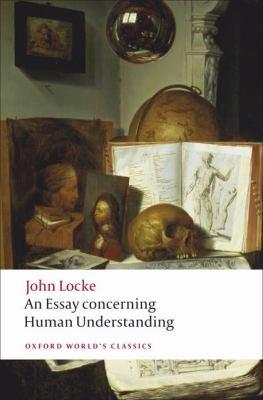
An essay concerning human understanding
John Locke sets out his theory of knowledge and how we acquire it. Eschewing doctrines of innate principles and ideas, Locke shows how all our ideas, even the most abstract and complex, are grounded in human experience and attained by sensation of external things or reflection upon our own mental activities. A thorough examination of the communication of ideas through language and the conventions of taking words as signs of ideas paves the way for his penetrating critique of the limitations of ideas and the extent of our knowledge of ourselves, the world, God, and morals.
Available Copies by Location
| Location | |
|---|---|
| Community Centre | Available |
Browse Related Items
| Subject |
| Knowledge, Theory of. |
- ISBN: 0199296626
- ISBN: 9780199296620
- Physical Description lvi, 520 pages --.
- Publisher Oxford : Oxford University Press, 2008.
Content descriptions
| Bibliography, etc. Note: | Includes bibliographical references (page xliv-li) and index. |
| Formatted Contents Note: |
Series
Additional Information
Summary
An Essay Concerning Human Understanding
'I must apply my self to Experience; as far as that reaches, I may have certain Knowledge, but no farther.'In An Essay concerning Human Understanding, John Locke sets out his theory of knowledge and how we acquire it. Eschewing doctrines of innate principles and ideas, Locke shows how all our ideas, even the most abstract and complex, are grounded in human experience and attained by sensation of external things or reflection upon our own mental activities. A thorough examination of the communication of ideas through language and the conventions of taking words as signs of ideas paves the way for his penetrating critique of the limitations of ideas and the extent of our knowledge of ourselves, the world, God, and morals.Locke's masterpiece laid the foundation of British empiricism and is of enduring interest to anyone exploring the development of philosophical thought. This sensitive abridgement uses P. H. Nidditch's authoritative text, and together with an illuminating introduction and other features, makes Locke's arguments more accessible.



